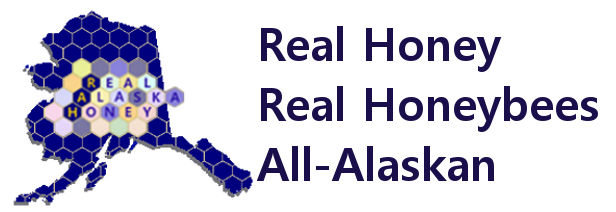Our friend, Harriet Drummond, has introduced a bill to ban the use of neonicotinid pesticides in Alaska. If you’ve visited this site before, we posted a piece about this legislation last year. If you want to get up to speed on the issue, take a look at this post.
The new bill is House Bill 20 (HB 20). This is an important bill for Alaskan beekeepers, but for a lot of reasons, this bill has a long, tough road. Here’s how you can help!
- Contact your House Representative! THIS PART IS REALLY IMPORTANT! You can do this in any number of ways – phone, email, regular mail. If you’re not sure who your representative is, you can find out here, and you can also get all of their contact information. The bill will probably not go anywhere without support from people all over Alaska, so the more contact we have with legislators, the more likely we are to make progress. It is also important that we contact as many legislators as possible, particularly those in more rural districts. If you have friends in other parts of the state that would be interested in supporting this legislation, let them know, too!
- Contact the Resource Committee members! By contacting these representatives (even if they’re not your representatives), you can let them know that this is an important issue. The committee co-chairs are Representative Benjamin Nageak of Barrow and Representative Dave Talerico of Healy. The other members of this committee are Representative Mike Hawker of Anchorage, Representative Bob Herron of Bethel, Representative Craig Johnson of Anchorage, Representative Kurt Olson of Soldotna, Representative Paul Seaton of Homer, Representative Andy Josephson of Anchorage, and Representative Geran Tarr of Anchorage. You’ll notice that many of the representatives are from Anchorage, so there’s a good chance that one of them is your neighbor (if you’re in Anchorage).
- Go to your legislator’s open house gatherings! Most legislators host community gatherings during the session (often in February or March). When you contact your legislator, you can ask them to add you to their newsletter email list, so you get notification of when and where the gatherings are taking place.
- In Anchorage (and perhaps other places) the legislators return home on a weekend to host a caucus meeting to talk to constituents. In Anchorage, this usually occurs in mid to late February. It is an opportunity to testify on legislation, and a great opportunity for dozens of beekeepers and interested citizens to show up and express their interest in the legislation.
- Do all of the above things, plus, spread the word! Please share this information with your friends, post it on Facebook and Twitter (and anywhere else). We really need to get all interested parties to act and contact our legislators!
This is an important issue for Alaskans. We’re working hard to create a strain of hardy Alaskan bees. Neonicotinid pesticides are a direct threat to this, since one of the symptoms of neonic poisoning is poor winter survival. And while we can’t legislate what happens in other parts of the country, Alaskans can send a message to the rest of America that we’re doing something to save the bees. The problem of neonic pesticide use in the Lower 48 directly affects us because of higher costs of package bees. When we buy package bees, we’re also competing with large scale commercial beekeepers who are replacing thousands or millions of lost colonies.
